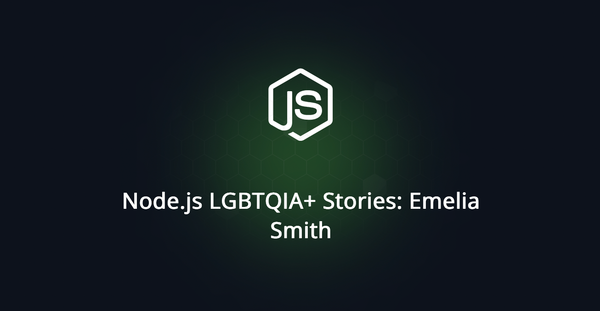November 2023 Update
The days are getting shorter, darker, colder and rainier — here is Novembers update on my work improving trust & safety in the Fediverse

The months are getting progressing and the year is starting to come to a close: the days are getting shorter, darker, colder and rainier: it must be November.
It’s time for an update: first up, an update on funding and some issues surrounding that, if you’re not interested in that, you can skip down to the updates on various things I’ve been working on over the past month.
Funding Update
In October, all funding came from Ko-fi memberships and one-time payments. During this period, we saw €687 in monthly memberships and €615 in one-time payments (significantly more than normal, likely due to my birthday being in October). That gives a total of €1302 in funding, but after fees, it worked out to be around €1200 in total income for the month.
On monthly memberships, Ko-fi is now reporting that we’re at €727 from the 24 members who contribute between €5 and €250 per month to support my work. There is, however, a discrepancy between the numbers that Ko-fi reports as revenue and the actual revenue according to data exports and Stripe’s dashboard, and I’ve no idea why.
The total income for the year to date between Ko-fi, Sponsorships, and Freelance work is €7,368.66, or about €1800 per month, which is definitely not a living income.
Most months I’m seeing a net loss of about €1000–2000, which is completely unsustainable, and I may need to take up freelance or contract work to be able to continue working on trust and safety and moderation tooling for the Fediverse.
Ko-fi Problems and Discrepancies
At the end of September, I started to sort out all the tax and book-keeping necessary to ensure all my income was accounted for and correctly recorded for taxation. This turned out much more complicated than I’d have expected, as Ko-fi doesn’t collect basic details from every customer (name, email, country), and doesn’t generate receipts for each payment made by customers.
Additionally, there’s significant discrepancies in the numbers reported by Ko-fi and the numbers reported by Stripe. I’m not sure whats causing these, and have had extensive back and forth with both Ko-fi and Stripe to try to resolve all the issues.
The net result of this was a loss of approximately 10 days of work, where I had to spend significant time building custom reporting tools to generate receipt and payout PDFs for Ko-fi based on data from the Stripe API. The tools I’ve written are open-sourced at thisismissem/stripe-connect-tools.
This was a major distraction and productivity drain, and completely unexpected. Ko-fi’s stance is that they’re not responsible for receipts or collecting customer information, when I’d argue that’s exactly what they’re responsible for, and why creators use them.
Hopefully my frustrations with Ko-fi can help other creators avoid their own problems with book-keeping and taxation, and hopefully Ko-fi will actually listen to the feedback I’ve provided them.
Other Delays
Besides the delay caused by Ko-fi and needing to handle book-keeping, I’ve also had to take several sick days recently due to health issues and mental health problems stemming from financial anxiety and stress: not knowing if you’re going to be able to pay your rent or buy food in the coming month is extremely stressful. I’ve been having to regulate my work significantly as to not get sicker or burn out, whilst still trying to make progress.
Work in Progress
This month was a little slower than normal, but the one totally completed piece of work for this month is a peer-review of a paper co-authored by Yoel Roth and Samantha Lai, which follows up on a series of workshops hosted over summer by the Carnegie Endowment for International Peace, which I participated in. This paper should be published in the coming months, once it has been peer-reviewed and updated.
There was some movement on several of my open Mastodon pull-requests, though a lot of them are currently deadlocked whilst we figure out the correct solutions to move forwards with. The main area I’ve been focused on is improving the visibility into the actions taken against instances and domains, and preventing links to potentially harmful domains from appearing in the administration dashboard.
I also opened up several issues regarding moderation tooling changes that we’ll need in Mastodon as usage continues to grow. Writing these issues does take a fair amount of time, and will require much more work to resolve, including the writing of FEPs for better federation of moderation reports and moderation notes (which allow moderation teams to communicate with one another).
Another area that had my attention was the feature request to have client-credential based access to the Mastodon Streaming API. Whilst I have a working branch that implements this, there are currently too many open questions and issues regarding moderation, trust & safety, privacy and data security to open a pull request. The primary issue is that we can’t open an API just for the good consumers, and there’s no tools to prevent abusive consumers from using this API for harassment or mass data surveillance.
FIRES Update
Over the past two months, with some funding from Nivenly Foundation, I’ve been working on a proposal and initial implementation of a project called FIRES — Fediverse Intelligence Recommendations & Replication Endpoint Server — which aims to help with distributing moderation advisories and recommendations, rather than denylists or blocklists.
The work that goes into writing a robust proposal that has been peer-reviewed is extensive, we’re talking at least 100 hours of work. This isn’t a proposal I’m writing, and quickly putting out there before abandoning, this is a long-term project.
Some of the functionality proposed in FIRES is intended to flow back into Fediverse software projects like Mastodon and Pixelfed, for instance, more structured data for domain moderation. I’m also looking at adding the ability to create moderation advisories that you can share with other moderators and with moderation groups directly into Fediverse software.
I’ve slowly been working through the feedback from the peer-review round, and reworking the proposal to be much clearer. You can read more about the proposal in my October update.
Collaborations and Future Work
Over the past month, I’ve also been in close collaboration with Oliphant, as a lot of the ideas I presented in FIRES and his work overlap. We’re currently working on some tools to make it easier to develop additional third-party moderation tooling in the future. These are intended to be released under the FediMod project.
CSAM and Germany
In my last update, I mentioned contacting Freiwillige Selbstkontrolle Multimedia-Diensteanbieter (FSM) for the protection of youths in online media about CSAM and reporting it to law enforcement agencies. Just today I’ve received a response, however, it still failed to clarify the situation.
It seems like the only way that the German Federal Police investigate CSAM is via them discovering it and contacting the service provider/operator for data, and that there is no mechanism for securely reporting and providing information and evidence to the federal police for incidents of CSAM on Fediverse servers hosted in Germany.
This also comes at a time when there’s been a big push from EU politicians regarding monitoring for CSAM on social media and consumers’ devices, so the lack of correct and readily available procedures from the German Federal Police as to how to report CSAM to them as a service provider is quite the contradiction.
I’ll continue trying to find correct answers here, but for now the way to handle it seems to remain the same: delete and purge it instantly and move on, since there’s no legal requirement to report CSAM to law enforcement in Germany and any retention of CSAM is a criminal offense.
So, that concludes another monthly update on my work improving moderation tooling and trust & safety on the Fediverse. Hopefully in November I’ll hear back on several grant applications that have been submitted to NLNet, and the FIRES proposal will finally be ready for release to the general public.
Once again, many thanks to all my supported on Ko-fi, who enable me to do all the work I’m doing, whilst this update mostly contains the highlights of my work, there’s also a lot of other work and discussions happening in the background, or work which I can’t yet talk about publicly.
If you’d like to support the work I’m doing, the best way is by joining my Ko-fi Memberships!

